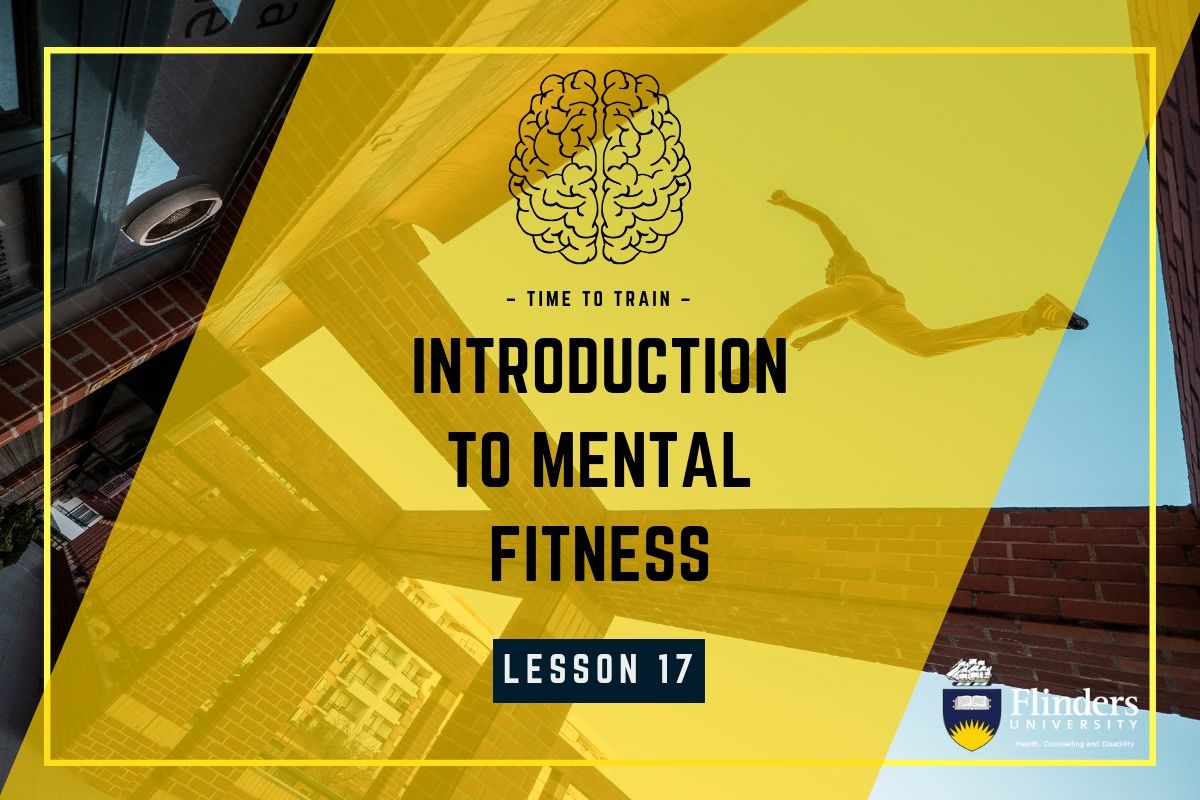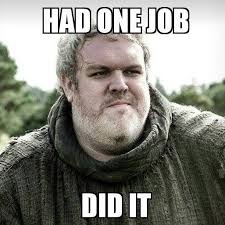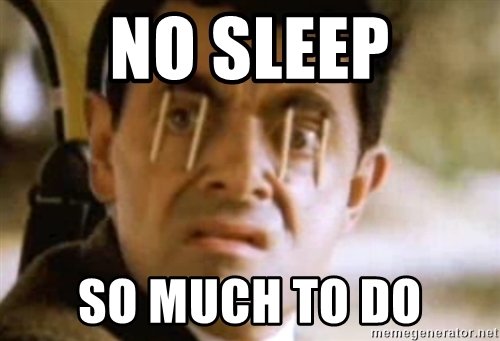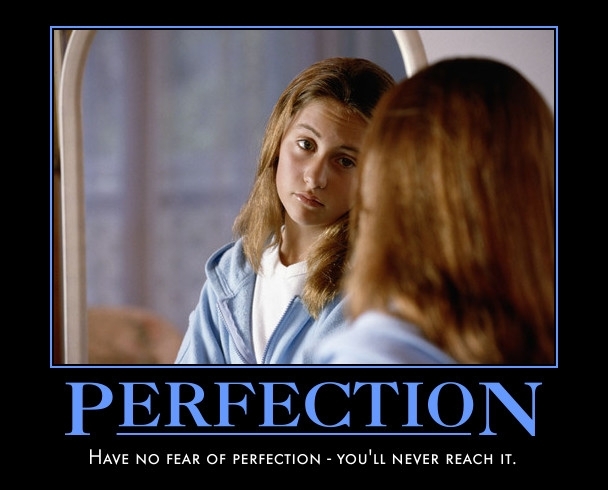
Greetings and welcome to Lesson 17 of my ‘Introduction to Mental Fitness’ course. If you are new to the course, check out the introductory post first.
Also a quick reminder that for Flinders students, these lessons can found on our FLO site as well, where you can chat about these lessons privately with other students, as comments left on this blog are visible to the general public.
Helloooo!
Welcome to Lesson 17 of the Introduction to Mental Fitness Course.
At this stage of the course, we have covered most of the basics of building mental fitness. Lesson 15 is a really good one to revisit if you want a quick coverage of the basics.
Now it is about us (including me) making some actual changes in our life with the intention of building our mental fitness. The goal isn’t tonnes more reading. The goal now is action and learning from those actions.

In the last lesson I gave you a list of potential changes you could make, across different areas. The changes ranged from simply committing to memory some useful concepts/principles such as psychological needs/ forming new habits, through to taking specific action to improve some aspect of your life (e.g. extra sleep, dietary change).
To be honest, I am not really fussed about which change you pick. What I am more interested in is that you make a deliberate and intentional decision to experiment with making changes to your life. When you run experiments in your own life, you learn valuable lessons about yourself, your strengths and weaknesses and what makes you happy and healthy. In this regard it is kinda like physical fitness. You can read all you want to about exercise, but you won’t really get any benefits until you start doing that exercise regularly.
So in the spirit of this, I decided to make a change in my own life. I decided to change my bedtime from 10.30 to 9.30. I have been doing this for the past few weeks.
What I want to do in this post is to talk through that change under the headings of the different steps/stages that are involved in building mental fitness. These were summarised in Lesson 15. Maybe you’ll be able to apply some of the ideas to changes you are trying to make in your life.
Self-reflection and analysis
Because of my training in a health discipline, I am mindful of there being many changes I could make in my life that would increase my health and happiness. The challenge is working out which ones are going to work for me, but also which ones are connected to my broader goals and values. This isn’t as easy as it sounds.
I could spend extra time each day doing more exercise, but if that takes me away from activities that might resonate more closely with me (e.g. reading), then I have a conflict, which I need to resolve by understanding the benefits and trade-offs to me.
That reality of there being ‘more things I want to do than time and energy I have to do them‘ is something I experience regularly. It can be paralysing.
Therefore you might be confused as to why I would choose extra sleep as a beneficial change – given that on the surface it reduces the time I have to allocate to things.
The reason is I’ve learned over time that the amount of sleep I get strongly influences my ability to concentrate and my mood. An extra hour or two of sleep (up to 10 hours) makes it much easier for me to concentrate during the day. Also I feel happier, so I am more likely to engage with people and approach new and challenging tasks. Extra sleep ‘purchases’ me extra efficiency.
That is the essence of self-reflection and analysis – getting to know yourself in ways that help you make choices in relation to your wellbeing.

Knowledge acquisition
When I decided to start getting more sleep I did not spend any real time learning more about sleep.
I was already convinced of its benefits. A cursory Google search of ‘sleep benefits‘ will find you thousands of articles, videos, podcasts etc on the topic.
However, when I was attempting to use my standing desk more often (I use it daily now), I did actually spend some time familiarising myself with the literature on standing desks. You can read about what I learned in Lesson 11.
Gaining knowledge on a topic can help in the early stages of making a lifestyle change. It forms part of the motivation to engage in the change. If I am thinking about getting more exercise, spending time reading about the mental and physical benefits of exercise might motivate me to make the change, because I am clearer on the benefits it might provide.
Continuing to gain knowledge whilst you are making a change can also help keep you motivated. For example, when I did the Couch to 5K program, I educated myself in an ongoing way about running styles in order to learn how to avoid injury.
When it came to getting more sleep, I also had the ‘knowledge’ gained from my own experience in the past. For example, I know I feel better on days I got good sleep vs days I do not. Past experience is a viable source of knowledge.
Attitudes/beliefs
There are ways of ‘thinking’ in relation to making beneficial changes that may help or hinder you in the change process.
For example, those who doubt their ability to make a change will be less likely to try to make the change, and less likely to persist through normal setbacks. One’s beliefs about their ability to do something is called ‘self-efficacy’. I’ve talked about it before here.
Those who expect that they should be able to implement a lifestyle change perfectly are at risk of feeling dejected or ashamed if things don’t quite go to plan (which they rarely do). People who set unreasonably high standards for themselves and then become highly self-critical when they don’t meet those standards are often called ‘perfectionists’.
In contrast, expecting the change process to be messy and a little chaotic helps you cope when the messy and chaos show up. If there are a bunch of days where I stay up late, I acknowledge that was always likely to happen and simply return to the change I was trying to make.
Having a growth mindset (that humans mostly get better through practice, not ability) will help you when the changes you are trying to make are difficult. People are quickly discouraged when they try something new and they suck at it. Realising that it is practice, not innate skill, that will determine whether you get value from the activity is an important reminder at these times.
With regards to my own experiences of getting more sleep, given that I’ve spent the last couple of years mindfully making small improvements to my life means I am generally confident I can make those changes. I’ve also learned to expect setbacks and delays along the way, which means I get less discouraged when things don’t quite go to plan.

Goals
If I had just set myself the goal of ‘getting more sleep’, I would be left with ambiguity about how that was going to happen. Ambiguity opens up more space for ambivalence or avoidance to set in. If I am not precise about my goals, I can more easily and with less guilt deviate from those goals.
Therefore you need to be specific with your goals in a way that means you can easily assess if you have achieved them.
For me this was about making my broader goal of ‘getting more sleep’ into a specific goal (bedtime at 9.30), knowing that if everything else remained constant (wake time, how long it takes me to get to sleep) that doing so would add 1 hour of extra sleep to my day.
Whilst goals need to be specific, it doesn’t mean that you can’t change or modify them along the way. For example, if there were things reliably getting in the way of me changing my bedtime, I could have focused instead on my wake-time and modified my morning ritual instead. Same overall goal (more sleep) but a different process goal (how to get more sleep).
Skills
Going to bed 1 hour early was not a skill that I needed to develop. I could do it without additional training or practice. In fact, I have been finding it very easy (‘zzzzzzzzzz’).
But other changes I’ve made in the past have required training (e.g. mindfulness meditation).
Depending on how complex the change you are trying to make is, remember that getting a teacher or a guide or a mentor might be an important part of the process.
I know that one of my future goals is to spend more time playing the guitar. To do that I will need to take lessons in order to learn new things on the guitar that keep me interested.
Acknowledging that you might need to build some skills in an area before making it a part of your life can help free you from the sense that ‘you should just be able to do it’ on your own. I’ve typically always been invigorated about a change after getting some additional instruction or guidance on it (e.g. keeping bonsai).

Self-experimentation
I think it can be useful at times to think about your life as a series of small and large experiments.
In an experiment, we make a prediction about how something will work (based on experience or other experiments). We then set up a suitable test of our predictions. We run the experiment and then we look at the results and see if they align with our predictions. We take what we learn from that experiment and then run other ones and so forth. The more experiments we run, the more we learn about ourselves.
Not all aspects of life are well suited to an experimentation philosophy. For example, I don’t recommend saying to the person that you intend to marry ‘Hey, this will be a really interesting experiment to see if it works!’
However when it comes to making changes to other aspects of our life (e.g. diet, physical activity, hobbies, study techniques, sleep) a self-experimentation philosophy can be a good way to approach these changes. It allows you to approach them with an attitude of curiousity and interest which might counteract any highly self-critical aspects of yourself that will seek to define your efforts at self-improvement as ‘failures’, rather than extracting from them interesting lessons.
In the two weeks that I have been experimenting with going to bed earlier, I have discovered that a) it does seem to improve my mood the next day, b) I take a little longer to get to sleep than usual, c) I am thinking that I might add 1/2 hour of reading before bed to the process and d) I wake up more during the night on nights that I got to bed earlier. As I gather these ‘findings’, I learn more about myself
Habits and routines
If you experiment with making a change in your life and the outcomes are positive, you now have the option to look at making it a regular feature in your life.
For relatively simple behaviours, the goal is to make something a ‘habit’ – something you do automatically without really thinking about it. For example, it is now a habit for me to put my desk in the standing position when I arrive at work.
For more complex behaviours (e.g. sequences of study strategies) the idea is to develop ‘routines’. Routines are sequences of actions that are regularly followed. For example, you might approach new assignments in the same way each time – lock in due date –> schedule time to work on assignment –> clarify question –> initial thoughts –> research –> assignment structure –> draft 1 –> further research –> draft 2 –> share with study buddy –> final draft –> submit.
Routines help you make more efficient use of your time. They also take the guess work out of how to approach complex situations.
I’ve started developing a nightly routine that helps me stick with my 9.30 bedtime. Stop eating at 7.00pm –> watch an enjoyable show –> prepare stuff for next day –> brush teeth 9.15 –> get a water –> set phone on charge –> sleep.
Both habits and routines help reduce automate those parts of life that have health and wellbeing benefits, so we can instead devote attention to the tasks and activities and people that give our lives meaning and purpose.

Final words
If you’ve been inspired by this mental fitness course to experiment with making some changes in your life, use the stages/steps above to help you dig a little further into the change.
- why is it you are making the change?
- what knowledge about the change would help motivate you to make the change?
- how positive or negative is your attitude towards the change and/or your ability to make the change?
- have you clarified the change you want to make clearly into a specific goal?
- is the change complex? If so, who or what might help you develop the skills necessary?
- are you open to experimenting with the change and simply observing what happens?
- are you hoping the change will become a regular feature in your life?

